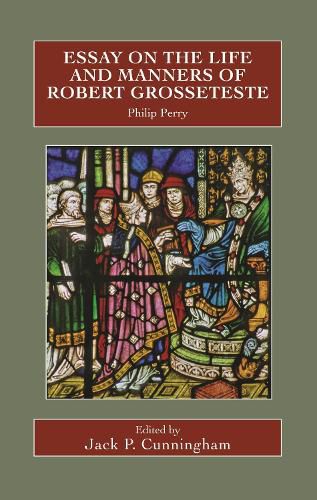Readings Newsletter
Become a Readings Member to make your shopping experience even easier.
Sign in or sign up for free!
You’re not far away from qualifying for FREE standard shipping within Australia
You’ve qualified for FREE standard shipping within Australia
The cart is loading…






Philip Perry’s Essay on the Life and Manners of the Venerable Robert Grosseteste presents us not only with a high standard of biographical scholarship but also a fine example of English eighteenth-century polemical writing. Grosseteste was a formidable thirteenth-century bishop of Lincoln who, because of his insistence upon the primacy of Scripture and his apparent wrangling with the papacy, had long been claimed as a type of proto-Protestant in the English post-Reformation historical tradition. Perry sets out in his Essay a vivid account of Grosseteste’s life and achievements to advance his cause as a worthy saint and to recover his reputation as a loyal son of the Roman Church. His frank discussion of the abuses that Grosseteste opposed and the controversies in which he engaged put his text beyond the limits of what a Catholic priest could advisably print in eighteenth-century England. The manuscript remained unpublished for fear of causing scandal, and now sees its first printed edition
$9.00 standard shipping within Australia
FREE standard shipping within Australia for orders over $100.00
Express & International shipping calculated at checkout
Philip Perry’s Essay on the Life and Manners of the Venerable Robert Grosseteste presents us not only with a high standard of biographical scholarship but also a fine example of English eighteenth-century polemical writing. Grosseteste was a formidable thirteenth-century bishop of Lincoln who, because of his insistence upon the primacy of Scripture and his apparent wrangling with the papacy, had long been claimed as a type of proto-Protestant in the English post-Reformation historical tradition. Perry sets out in his Essay a vivid account of Grosseteste’s life and achievements to advance his cause as a worthy saint and to recover his reputation as a loyal son of the Roman Church. His frank discussion of the abuses that Grosseteste opposed and the controversies in which he engaged put his text beyond the limits of what a Catholic priest could advisably print in eighteenth-century England. The manuscript remained unpublished for fear of causing scandal, and now sees its first printed edition